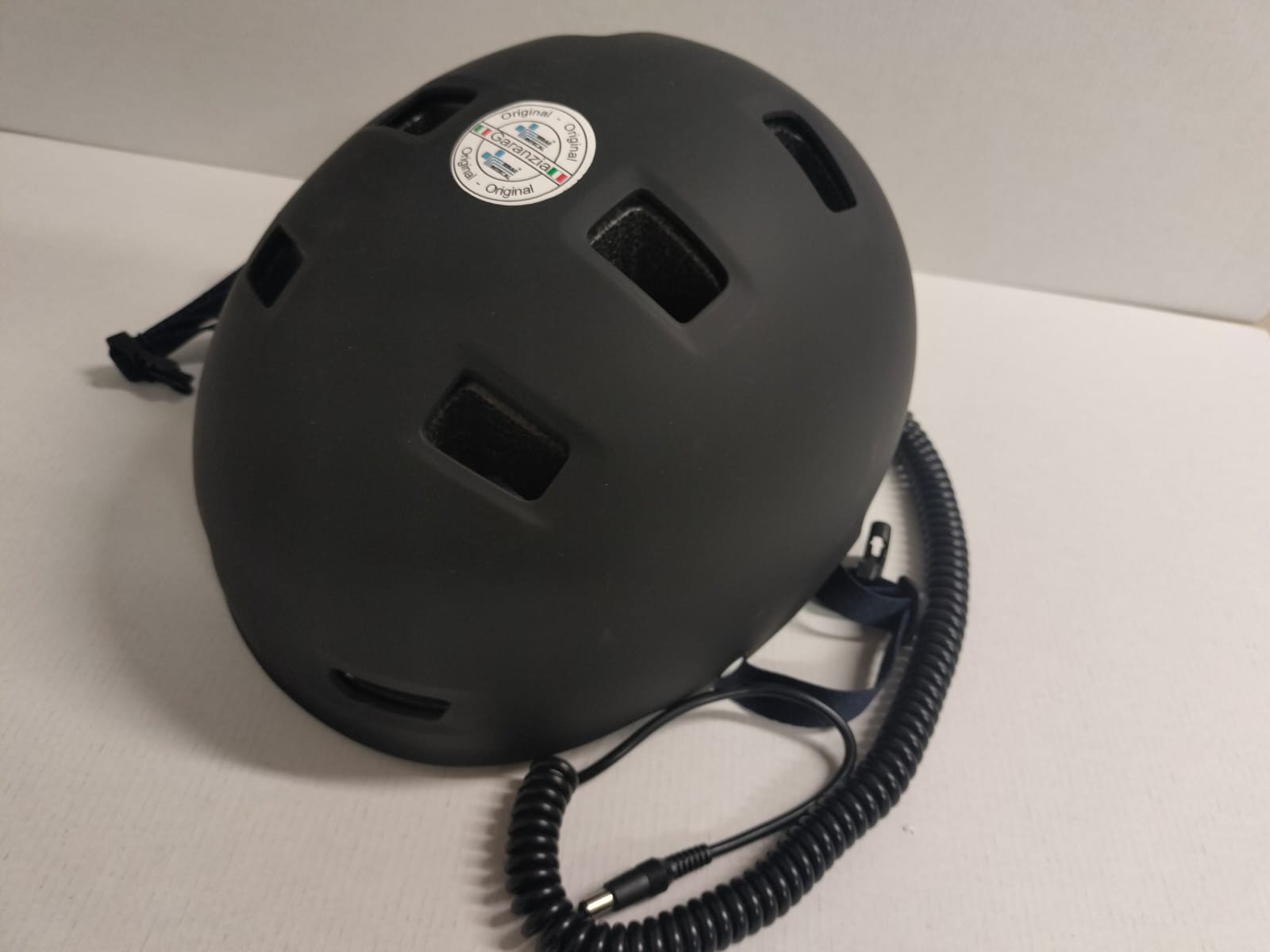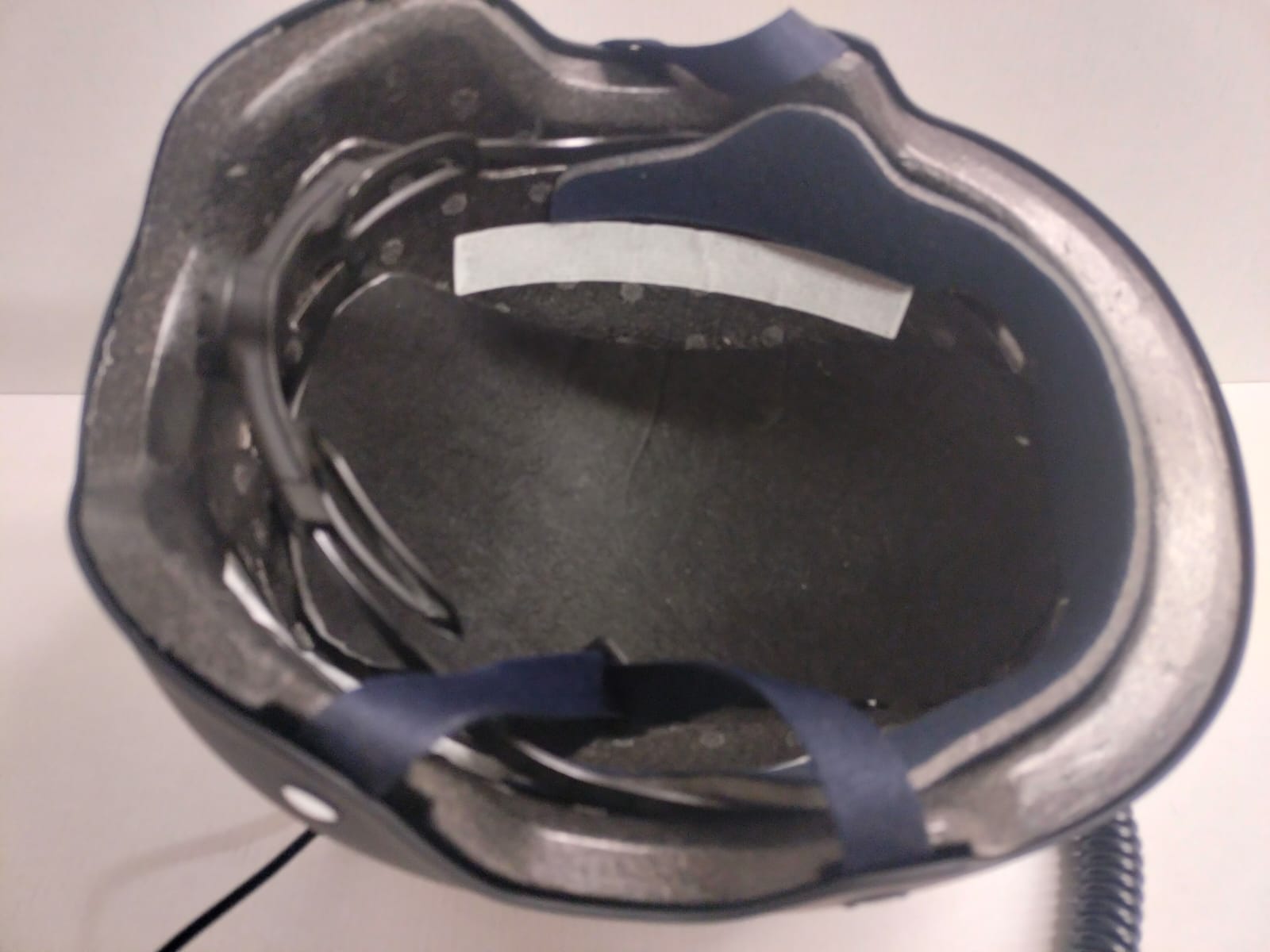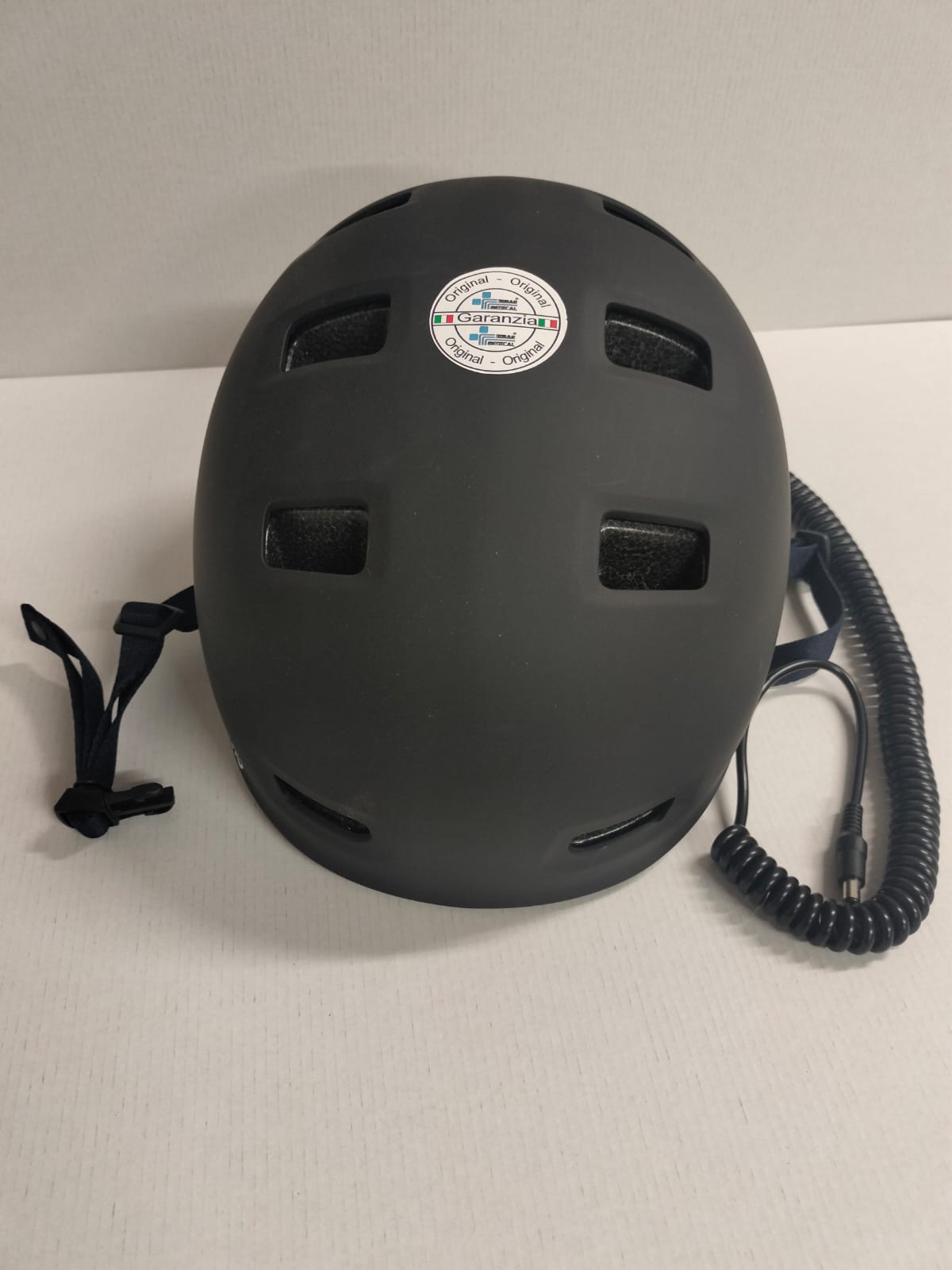New Transcranial Magnetic Stimulation Brain Therapy Helmet
Transcranial Magnetic Stimulation (TMS)
Transcranial Magnetic Stimulation (TMS) represents a non-invasive and non-pharmacological therapy that uses the magnetic field to stimulate or inhibit specific brain areas, proving highly effective for the treatment of many disorders, including Resistant Depression and Obsessive-Compulsive Disorder.
What is Transcranial Magnetic Stimulation?
Transcranial magnetic stimulation (TMS) is a non-invasive, non-pharmacological neuro modulation technique that uses a magnetic field to stimulate or inhibit specific areas of the brain. TMS is was developed in the 1980s as a diagnostic technique to study brain function, but today it is used as a treatment method for a variety of neurological and psychiatric disorders, such as Depression Resistant and Obsessive-Compulsive Disorder.
Mechanism of action
TMS is based on the principle of electromagnetic induction, which allows activity to be stimulated or inhibited neuronal of specific brain areas, thus managing to re-establish the correct functioning of the brain cells brain that are altered by the presence of a disorder. In more detail, starting from an electrical stimulus which through the TMS helmet connected to the Magnetic Evolution device, generates magnetic impulses capable of penetrate painlessly into the skull of the treated person and reach the cerebral cortex, inducing a stimulatory current capable of modulating the activity of neurons.
Depending on the parameters chosen for the stimulation, the effect on the brain can be of two types:
1. Activation ― induction/increase of the electrical activity of an otherwise inactive or hypoactive area;
2. Inhibition – reduction of ongoing electrical activity in a specific hyperactive area.
Numerous laboratory studies suggest that the modulation action of neuronal activity obtained through TMS is achieved through the improvement and strengthening of Brain Derived Neurotrophic activity Factor (BDNF; an important factor involved in the plasticity of neuronal cells) through an action on its TrkB receptors, therefore suggesting that the benefits obtained through this neuromodulation technique are to be attributed to an improvement in brain plasticity.
Types of TMS
There are different types of TMS, which can be applied in a personalized way to achieve effectively the specific therapeutic objectives established for each individual patient:
• Repetitive Transcranial Magnetic Stimulation (rTMS): rTMS represents the type of stimulation Transcranial Magnetic most used in the clinical field thanks to its high flexibility programming that allows its use for the treatment of many ailments. It is a technique neuromodulation which uses stimulation characterized by short repeated magnetic impulses and spaced at time intervals already set by default in Magnetic Evolution or programmable for achieve the desired therapeutic effect. The great advantage of rTMS is represented by the fact that it allows you to stimulate or inhibit specific brain areas of interest in a manner absolutely personalized depending on the symptoms presented by the individual patient, thus allowing a high degree of possibility of adaptation to each person’s specific needs patient and, for this reason, constituting an ideal treatment method for precision care.
TMS Neuromodulation Therapies can be applied safely and effectively in multiple ways therapeutic fields and on different types of patients of all ages. Everyone can benefit from therapies of Neuromodulation, with the exception of the following cases:
• Presence of previous or current seizures (Epilepsy);
• Presence of pacemaker;
• Presence of cochlear implants.
Therapeutic areas of Neuromodulation Therapies
Types of patients
― Patients with Post-COVID disorders;
― Drug-resistant patients;
― Patients who cannot take medications;
― Patients with metabolic disorders;
― Patients who are candidates for ECT or resistant to ECT;
― Patients with sports injuries;
― Improved sports performance.
In Psychiatry
― Depression;
― Mood Disorders and Bipolar Disorders;
― Autism;
– Psychosis;
― Negative symptoms of schizophrenia;
― Auditory hallucinations;
― Obsessive-Compulsive Disorder;
― Trichotillomania and Dermatillomania;
― Behavioral addictions (Gambling, Internet, Pornography);
― Substance addictions (Alcohol – Cocaine – Tobacco);
― Psychiatric disorders during pregnancy;
― Post-Partum Depression;
― Psychiatric disorders during assisted reproduction;
― Sleep disorders;
– Diabetes.
In Neurology
― Cognitive rehabilitation;
― Post-stroke or head trauma rehabilitation;
― Post-stroke swallowing disorders;
― Pain, including headaches and fibromyalgia;
― Parkinson;
― Tinnitus (Tinnitus).
PRICE:
$290.70 $280.70



